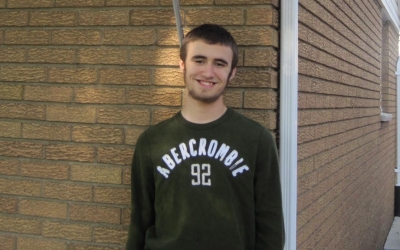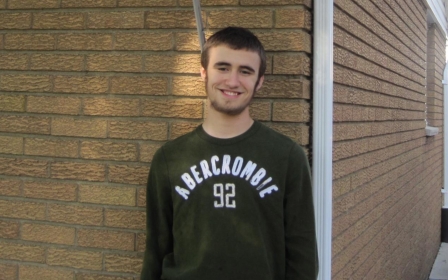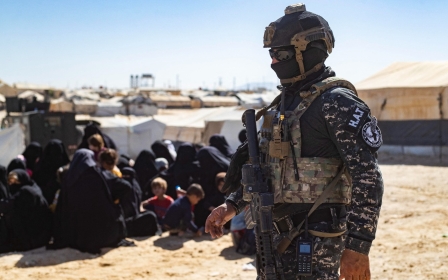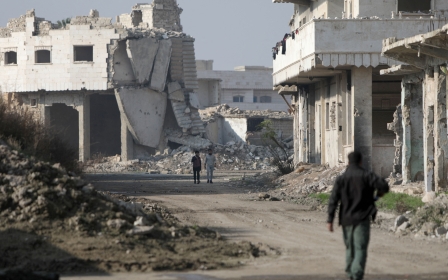Syria camps: Canada accused of cruelty over 'ultimatum' to mothers to give up children
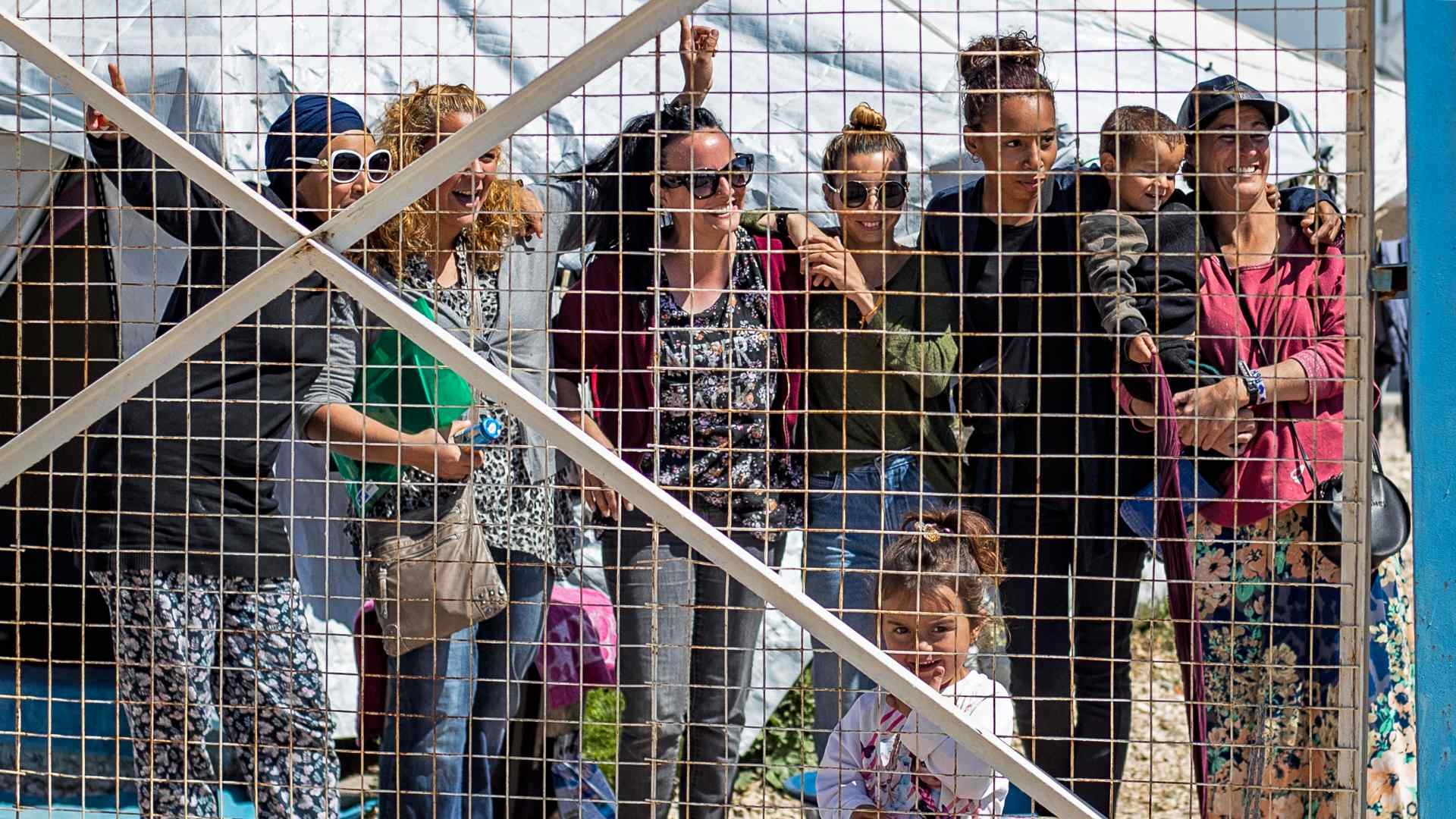
The Canadian government has been accused of "unyielding cruelty" after giving a number of women held in detention camps in northeast Syria a new deadline to give up their children for repatriation.
The cases concern children who are Canadian nationals, either through their fathers or because they were born in Canada, but whose mothers do not hold Canadian citizenship.
According to a lawyer representing two of the mothers, Canadian officials last week issued an ultimatum to the women, telling them that their children could be repatriated on a flight early in July but that they must remain behind.
Asiya Hirji, the women's lawyer, said it was the third time that the women had been told to choose between keeping their children with them in the camps or being separated from them with almost no prospect of ever being reunited.
Previous ultimatums had been issued by Global Affairs Canada, the Canadian foreign ministry, in January and March, she said. On each occasion, the women were warned there may be no further opportunities to send their children to Canada.
New MEE newsletter: Jerusalem Dispatch
Sign up to get the latest insights and analysis on Israel-Palestine, alongside Turkey Unpacked and other MEE newsletters
Hirji said she had submitted temporary residency permit applications for the women in February and had now filed an emergency court application in a bid to enable the women to travel with their children.
"It is truly disheartening to witness Canada's unyielding cruelty in its refusal to display any compassion towards these women and children who have endured prolonged suffering," she said.
'It is disheartening to witness Canada's unyielding cruelty in its refusal to display any compassion towards these women and children'
- Asiya Hirji, lawyer
"The actions taken by Global Affairs in maintaining their initial ultimatum are particularly distressing for these mothers and their children."
Conditions in the al-Hol and al-Roj camps, where the families of suspected Islamic State (IS) group militants have been detained for years, have been widely condemned by humanitarian and human rights organisations.
Rights groups, local Kurdish officials and senior US officials have called on countries to repatriate thousands of foreign nationals still being held in the region.
A spokesperson for Global Affairs Canada told MEE the government was concerned for the health and wellbeing of the remaining Canadian children in the camps because of reports of deteriorating conditions, and had offered to repatriate them.
'Impossible choice'
But Canada is among a number of western countries that have resisted bringing home their own citizens, citing national security concerns.
Facing legal action by the families of detainees, in January the Canadian government agreed to repatriate women and children from the camps. In April, four women and 10 children were returned to Canada.
But Hirji said Canada's refusal to repatriate non-Canadian mothers of Canadian children appeared to contradict its own policy framework for repatriations adopted in 2021, which stated that children should not be separated from their parents except in extraordinary circumstances.
In a statement issued through Hirji, a woman identified as Zahra, described as the mother of three children in one of the camps, said: "I am so tired and drained from this emotional rollercoaster of being asked every two months whether I would be okay to never see my children again as the price of their getting out of this horrible place.
"It's an impossible choice. The only adult these children have known all their lives, both in a war zone and in prison camps, is me. All of us will fall apart without each other."
'This is child abuse and woman abuse all rolled into one, the very crimes this government repeatedly says must be ended'
- Matthew Behrens, activist
In a separate case reported by Canada's CBC News on Monday, a lawyer representing a Canadian mother of six still detained in the camps said the Canadian government had told him it would not repatriate the woman because of security concerns.
Lawrence Greenspon said the woman had been given the option to send her children on an earlier repatriation flight, and now faced a choice between keeping them with her in Syria or sending them to Canada.
"It's not a choice that any mother anywhere in the world should have to make," said Greenspon.
Human rights groups have warned that the separation of children from their parents through repatriation procedures could be in breach of their fundamental rights.
Sarah St Vincent, executive director of Rights and Security International (RSI), which has previously described conditions endured by detainees in the camps as amounting to torture, told Middle East Eye that child separations and threats of child separations had a "really ugly history".
Family life, she said, was a "fundamental unit", enshrined in international human rights law. She said the conditions in which the women were being held raised questions about whether they could give consent to give up their children, or would do so under conditions amounting to duress.
"Taking somebody's children away is an incredibly consequential decision on so many levels," said St Vincent.
"There are many grounds, both legal and historical, why this is a really offensive approach for the Canadian government to be taking," said St. Vincent.
In March, it was reported that at least 10 Canadian children of four non-Canadian mothers remained in the camps.
Last week, campaigners calling for the repatriation of all Canadian nationals from northeast Syria announced plans for a delegation to travel to the region to seek access to the remaining detainees and meet local officials to discuss steps towards further repatriations.
But the planned delegation is not being supported by the Canadian government.
It has refused to repatriate four Canadian men held in prisons in the region – a position last month upheld by an appeal court which overturned an earlier judgment ordering the government to repatriate the men.
Matthew Behrens, a spokesperson for campaign group Stop Canadian Involvement in Torture, said that the continuing detention of Canadian nationals in northeast Syria was at odds with the Canadian government's own support in 2021 for an international campaign denouncing arbitrary detention.
"Canada has fought for years to prevent their return, despite knowing the brutality of their conditions. This is child abuse and woman abuse all rolled into one, the very crimes this government repeatedly says must be ended," said Behrens.
The Global Affairs Canada spokesperson said: "In light of the deteriorating security and humanitarian conditions, we have offered to repatriate Canadian children.
"Agreeing to or requesting repatriation for one’s child is an incredibly difficult decision and one that must be made by the parent, and the parent alone. It is important that such a decision is informed by all available facts.
"Due to privacy and operational security considerations, we cannot comment further."
Middle East Eye delivers independent and unrivalled coverage and analysis of the Middle East, North Africa and beyond. To learn more about republishing this content and the associated fees, please fill out this form. More about MEE can be found here.


